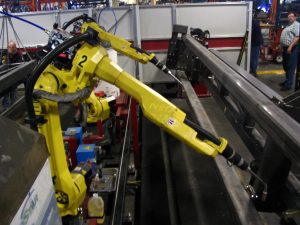 As technology enables more work to be completed by machines, jobs have and will continue to disappear. On the surface, this may appear distressing for the future economy, especially given the current level of displaced workers in this country. However, a recent report suggests that automation represents a paradigm shift requiring new skills and a new mindset. Preparing for this new reality can help prevent a jobs crisis.
As technology enables more work to be completed by machines, jobs have and will continue to disappear. On the surface, this may appear distressing for the future economy, especially given the current level of displaced workers in this country. However, a recent report suggests that automation represents a paradigm shift requiring new skills and a new mindset. Preparing for this new reality can help prevent a jobs crisis.
One of the most salient points in any discussion about automation and the future of jobs is how to avoid massive displacement of workers. How can economies continue to hum in the midst of such a disruption, often called the Fourth Industrial Revolution?
Automation will bring about enormous changes. Responding to these changes is a complex and ongoing process. However, researchers have developed some solutions regarding how governments and business can respond:
- Fiscal policies that drive economic growth, such as infrastructure investment and supporting business innovation.
- Job retraining and skills development, which may be a major challenge to implement.
- Improving labor mobility, both geographic and occupational. Workers who desire to bring their skills to a new area may find cost of living prohibitive. In addition, matching workers’ skills with jobs that cross industries needs to be improved.
- Income support for workers. Workforce transitions can depress wages and as the market adjusts to a greater degree of automation, workers may need wage policies such as gains tied to productivity growth to maintain stable employment levels.
According to the study, 375 million workers will need to transition to new occupational categories over the next 30 years. Categorizing this shift as the Fourth Industrial Revolution might not be hyperbole.





